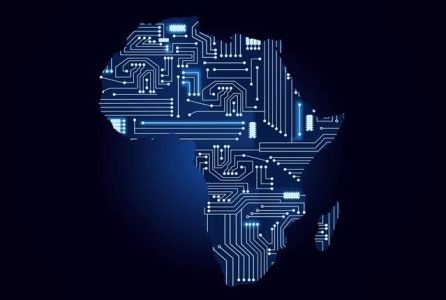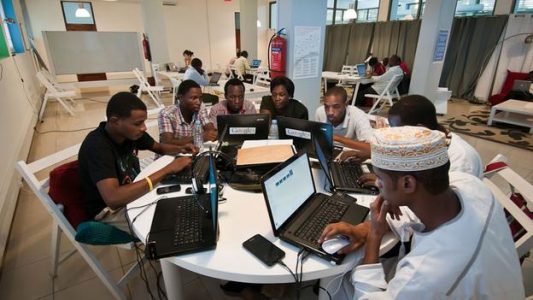Technology
Wherever we look at the sky in the night, be it from the dark of countries or continent, be it from the light-polluted city or mountains, we sometimes wonder why the sky at dusk is filled with colors, why do stars twinkle and planets do not, why is the sky appears to be spinning around us every day…since the dawn of recorded history, the same stars in nearly the same array have shone down on all people and races and colors and languages, giving all of our civilizations a common heritage – We do not need any special equipment to marvel at the beauty of the universe…it goes to prove the work of Arthur Upgren that the night has a thousand eyes.
This has given us an illuminating exploration of how we have come to consider and analyze the world around us. Yet over the centuries, through the struggle to solve such mysteries as the curious apparent backward movement of the planets or the rise and fall of the tides, science eventually emerged as a modern discipline. Before history, there was science – nature presents us with a variety of puzzling phenomena: fire, lightening, thunderstorms, plagues, planetary motion, tides, and also some useful generalizations: fires are hot, thunder and lightening presages rain, tides are highest when the moon is full or new and so on. But come to think of it, science could hardly exist without human beings to experiment, discover, and practice it.
Science is a technique that is well tuned to nature so that it works, a practice that enables us to learn reliable things about the world – meaning, it was a technique that was waiting for people to discover it. With all its imperfections and varieties, agriculture was discovered as a methodology in science and agriculture is the way it is because its practices are properly tuned to the realities of biology so that it works – it allows us to grow food. We must acknowledge that it was in physics that science first took a modern form. Actually, there is a sense in which the development of scientific biology as well as chemistry in the nineteenth and twentieth centuries followed the model of the revolution in physics of the seventeenth century. Today, science is international and as a matter of fact the most international aspect of all civilizations. Today, many historians have pointed to the West in the discovery of science. That is untrue – modern science and techniques learned its methods from evolution and discoveries from work done in Arab countries, precisely EGYPT, in North Africa. It all started there. However, the West borrowed modern and contributory scientific knowledge from elsewhere: geometry from Egypt, astronomical data from Babylon, the techniques of arithmetic from Babylon and India, the magnetic compass from China, and so on. But it has long been known that civilization and inventions and discoveries, and medicine, and all aspects of scientific discoveries, techniques and technology etc., all started in EGYPT, Africa. Yes, it is true that modern scientific research was conducted in Europe during scientific revolution.
Japan replicated knowledge and techniques from that scientific revolution; China replicated the same thing, just a couple of decades ago to become exactly what they are today; South Korea and many Asian countries replicated and modernized science and technology to their own brand. We can see that science is not now what it was at its start.
Technology Replication
Technology replication is not a new phenomenon. Deng Xiaoping was a Chinese politician who championed scientific and technology revolution in China. He developed an agenda for upgrading China’s scientific level. Deng volunteered to take special responsibility for science, technology, and education, for he considered science to be the most crucial of the four modernizations, the one that would drive the other three (industry, agriculture, and national defense). In his view, “China must catch up with the most advanced countries in the world.” He focused his attention on the high end…..on basic research to achieve scientific breakthroughs that would drive the other three modernizations in industry, agriculture, and national defense. We have to begin by overcoming some lingering anti-intellectual views. When asked why he warned China to spend so much money on a nuclear accelerator so early in its modernization effort, he replied, “China must look ahead to develop Chinese science.” According to Deng, “We should select several thousand of our most qualified personnel within the scientific and technological establishment and create conditions that will allow them to devote their undivided attention to research. Those who have financial difficulties should be given allowances and subsidies. The erroneous attitude of not respecting intellectuals must be opposed.” China came up today to display capability in all those civilizations.
Knowledge of Africans in Science and Technology
In Africa, science and inventions and technology are already in our DNA. Besides, we are naturally blessed with resources – materials and human capital and wisdom and knowledge and strength. What else should we wait for – We have everything. Curiosity and the quest for knowledge stand among the most priceless gifts Africans have inherited down through the ages. Can you imagine people like Edward Alexander Bouchet who was a slave in America in the 1800s. He was later freed as a young man and became the first African in America to earn a Ph.D. at Harvard University – at a time when only a handful of people in the entire country received at any university, let alone such a demanding institution. However, it must be acknowledged that Edward Alexander Bouchet (1852-1918), a physicist from Yale University, was the first African in America to earn a doctorate in Physics in the Western Hemisphere and he was the first African to graduate from Yale College, now Yale University. It’s important to mention NASA Astronaut Guion Stewart Bluford, who made history as the first African in America to fly in space during the launch of space shuttle Challenger on August 30, 1983; and also Astronaut Charles Frank Bolden who made four spaceflights aboard the space shuttle, two as a pilot and two as commander, logging 680 hours in space. However, Frederick Drew Gregory was the first African in America to pilot the space shuttle, Challenger on mission STS 51-B. Africans in the diaspora have demonstrated unbelievable talents in all fields and specializations. It’s absolutely important to mention a computer scientist, a mathematician, and inventor Philip Emeagwali, a pioneer in parallel computing who developed a formula in 1989 that allowed him to link up 65,000 processors in parallel to perform 3.1 billion calculations per second. Philip, born in Nigeria in 1954, was awarded the Gordon Bell Prize, the Computer world’s equivalent of the Nobel Prize.
But let us go back to history, Five centuries after Aristotle’s death, an Egyptian named Claudius Ptolemaeus (Ptolemy, 87-150 A.D) created a model for the universe that more accurately predicted the movements and actions of spheres in the heavens. He established an imaginary point that helped him account for observable planetary movements – Ptolemy was better able to predict the motions of celestial bodies. It is on record that this Egyptian-born scientist developed an acceptable model – Ptolemy’s geocentric model which the Western Christendom adopted as universal truth. Aristotle and Ptolemy’s picture of the cosmos reigned for well over a thousand years. It wasn’t until 1514 that the Polish priest Nicolaus Copernicus modified the heliocentric model of the Universe. But even so, Nicolaus relied on the Ptolemy’s mathematics (epicycle and quants) to explain the motions of the stars and planets – Mercury, Venus, Earth, Mars, and Saturn. The involvement of Africans in research and the determination of science and scientific capabilities is dated many centuries back.
It would a cardinal sin if we forget to mention African women inventors – Madame C.J. Walker invented hair care products for African women; Dr. Patricia Bath invented the Laserphaco Probe, a tool that corrects cataracts during eye surgery; Marie Van Brittan Brown invented the first closed circuit TV security system in 1966; Miriam Benjamin was the second black woman to receive a patent in 1888, for an invention she named the Gong and Signal Chair for Hotels: The Gong and Signal was eventually adapted for use in the US House of Representatives as well as airplanes; Sarah Goode became the first black woman to receive a patent after she invented the Folding Cabinet Bed; Alice Ball was a chemist who developed an injectable oil extract that was the most effective treatment of leprosy until the 1940s. Tell me why Africans cannot flood Western, Eastern, and EuroAsia markets with African goods, African technology, and African Medicines. What’s stopping us from launching to the Space – African students are all over European, Asian, American, and Russian Universities and they are the BEST, best graduating in various categories of degrees and specializations – science, technology, engineering, medicine, law, and humanities. Africa is a creative continent. There is this incredible feeling of African Brand – we want it, our European and American tourists, Asian investors, businessmen, missionaries, financial stakeholder, big banks, and international workers, everybody is eager to see African Brand in a peaceful Africa.
AGENDA 2063
African Brand in technology and manufacturing is achievable with African Union (AU) AGENDA 2063: Pan African Vision of An integrated, prosperous and peaceful Africa, driven by its own citizens, representing a dynamic force in the international arena and Agenda 2063 is the concrete manifestation of how the continent intends to achieve this vision within a 50 year period from 2013 to 2063. Science and Technology development is the prime driver of this vision. Yes, computers already undergird our financial system, and our critical infrastructure of energy, water, and transportation. Computers are at home, in our hospitals, cars, and appliances. Many of these computers, such as those running buy-sell algorithms on wall street and other investment centers, work autonomously with no human guidance. We get more dependent every day – so far, it’s been painless and fun but it is not carrying our Label. We need African brand.








